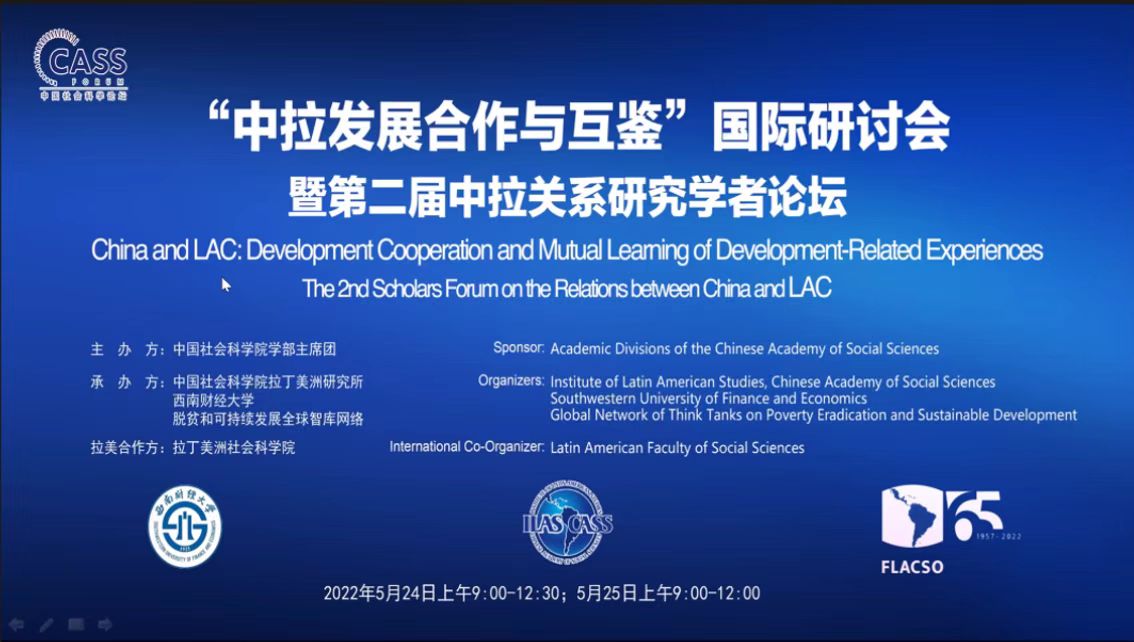
From May 24 to 25, China and LAC: Development Cooperation and Mutual Learning of Development-Related Experiences-The 2nd Scholars Forum on the Relations between China and LAC were held in the form of an online conference. The forum was sponsored by the Academic Divisions of the Chinese Academy of Social Sciences (CASS), organized by SWUFE, Institute of Latin American Studies (CASS), and Global Network of Think Tanks on Poverty Eradication and Sustainable Development, and co-organized by the Latin American Faculty of Social Sciences. Zhao Qi, Secretary-general of CASS, Josette Altman Borvon, Secretary-general of the Latin American Faculty of Social Sciences, Clement Rossi, former Minister of Foreign Affairs of Guyana, and Cai Wei, Director-general of the Department of Latin American Affairs of the Ministry of Foreign Affairs, attended the opening ceremony and delivered speeches. Jose Maria Figueres, former President of Costa Rica, and Zhou Hong, director of the Department of International Studies of CASS, were invited to deliver keynote speeches at the seminar.
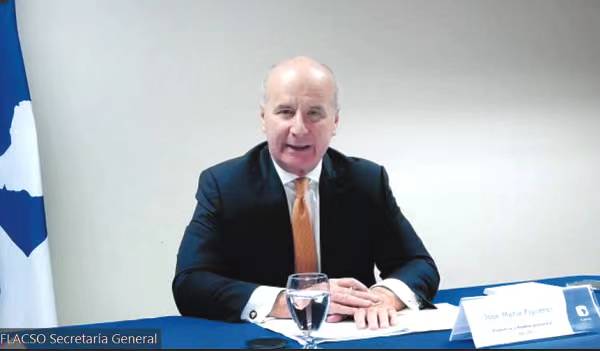
Jose Maria Figueres said global development is currently facing unprecedented complexity. The challenges of COVID-19 pandemic, weak global economic recovery, deteriorating geopolitics and accelerating climate change are all taking a toll on countries around the world. Only through cooperation, mutual understanding and mutual support can countries jointly tackle these major challenges. China-Latin America cooperation enjoys a long history and the purpose of this meeting is to organize the academic circles of the two sides to conduct full exchanges and jointly explore solutions to these challenges. We look forward to more in-depth and closer academic dialogue between the two sides, promoting the implementation of the joint action plan and making efforts to improve the well-being of the Chinese and Latin American people.
Zhou Hong mentioned that fundamental changes are taking place in the field of international development aid, one of the main manifestations of which is the update of statistical standards for international development aid. Over the years, there have been two different practices in the field of international development aid: North-south aid led by the Organization for Economic Cooperation and Development (OECD) and South-South cooperation with the theme of mutual benefit. The two approaches are different not only in initial objectives, guiding principles, but also in statistical standards. The direction of this change is part of the convergence of the two under the framework of the UN 2030 Sustainable Agenda. It will be a process of reinterpreting development and recalculating development resources. It will also be a process of gaming, compromise and cooperation.
The forum focuses on the implementation of President Xi Jinping's Global Development Initiative, China's development achievements and experience with the developing world, changes of the times and global development initiatives, historical experience and current needs of China-Latin America and Caribbean Cooperation, and opportunities and prospects of China-Latin America and Caribbean cooperation in the post COVID-19 pandemic era, seeking to precisely align and implement global development initiatives by facilitating the development needs of China and Latin America and the Caribbean. Participants agreed that the Global Development Initiative has become a driving force and compass for China-Latin America friendly cooperation in the new era. The Joint Action Plan on Cooperation between China and CELAC Member States in Key Areas (2022-2024), formulated at the third Ministerial Meeting of the China-CELAC Forum in December 2021, set out a series of specific areas and directions for the implementation of development cooperation. In the post-covid-19 era, China and Latin America should continue to build political consensus on prioritizing development, so that development cooperation based on the global Development Initiative can serve as a new guidance for steady progress of China-Latin America relations in both theory and practice.
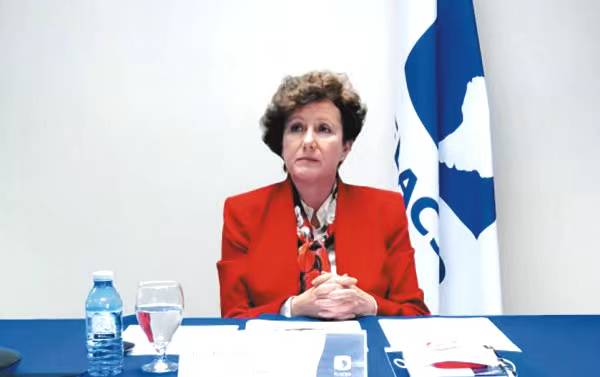
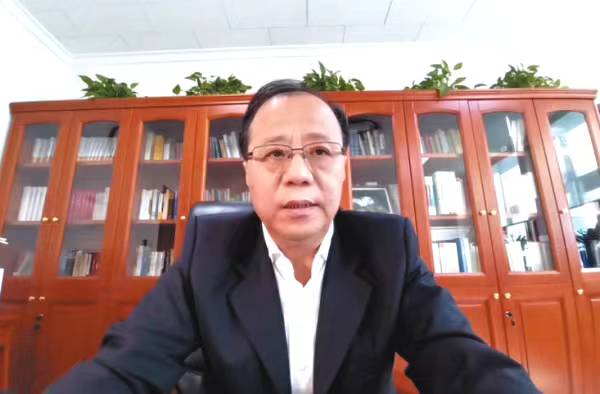
The participants discussed the direction and guiding principles for meeting the development needs of China and Latin America. Joint efforts to promote green and sustainable development have become a fundamental guideline and a solid foundation for upgrading china-Latin American relations. In the future, China and Latin America will continue to deepen cooperation in traditional areas such as infrastructure, energy and agriculture, expand cooperation in emerging industries such as green and low-carbon industries and clean energy and resources, and promote digital, intelligent and green development of industries in both countries. The two sides also need to step up policy exchanges and practical cooperation on climate change, work together to protect forests, oceans, water resources and wildlife resources, promote harmony between man and nature, and build a China-Latin America community with a shared future. In the post-pandemic era, the two sides need to share weal and woe as a community, continue to uphold the principle of equality and mutual benefit, enhance mutual understanding and trust, tap their own development potential, and jointly explore development paths. Both sides need to uphold multilateralism, promote dialogue and exchanges, build consensus and synergy through extensive consultation, joint contribution and sharing, and promote the precise alignment and in-depth integration of the development philosophies and strategies.
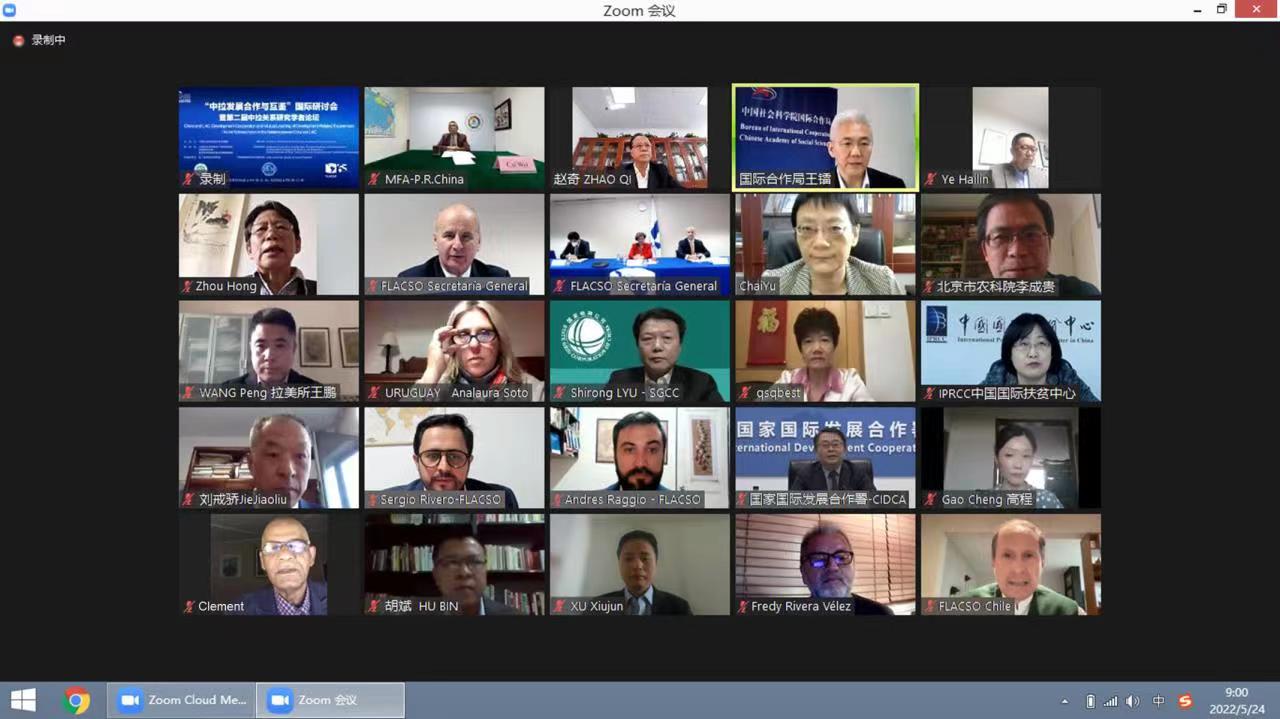
Wang Lei, Director of the International Cooperation Bureau of CASS, Chai Yu, Director of the Institute of Latin American Studies, presided over the opening ceremony and keynote speech. Hu Bin, Director of the Beijing Institute of SWUFE, presided over the closing ceremony. Experts and scholars from Cuba, Guyana, Costa Rica, Argentina, Ecuador and other Latin American countries, as well as representatives from domestic universities, research institutions, think tanks, enterprises and more than 150 people attended the conference. People's Daily online, Guangming network, Xinhuanet, China Social Science Network, CCTV Spanish channel and other media covered the event. The first China-Latin America Relations Scholars Forum was held in 2019. The Forum for Scholars studying China-Latin America Relations is moving forward to build a high-end academic exchange platform between China and Latin America.
